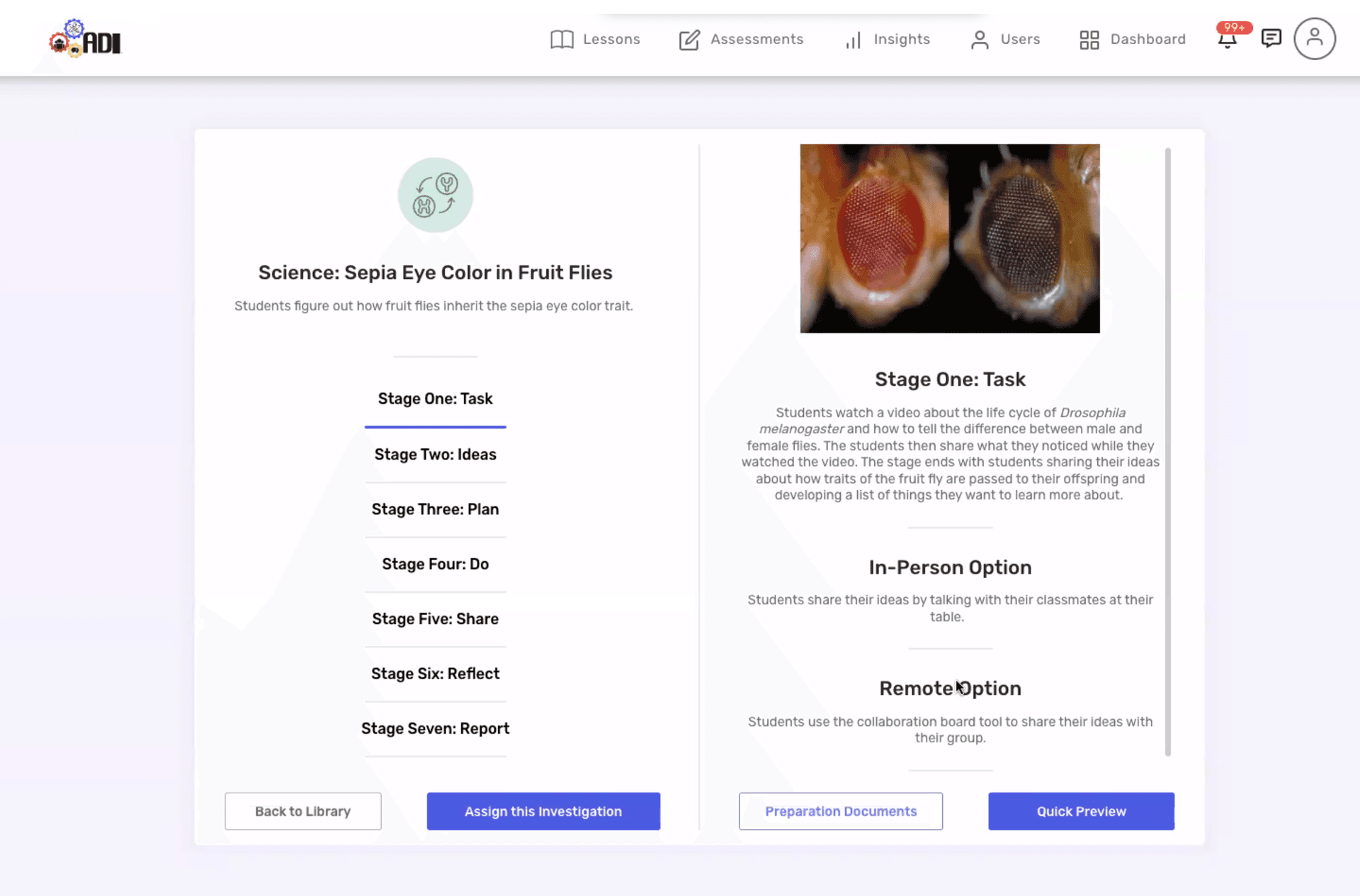E-learning hub boosts student interest in science and math

ADI revolutionized its business during the pandemic by introducing a custom, online e-learning platform for students to study science, math, and engineering.
About
Argument-Driven Inquiry (ADI) helps students fall in love with science and math through its unique, data-backed approach to teaching. Its tech-reliant platform is transforming the way core subjects are taught in Texas schools and beyond.
As lifelong educators (teachers since 1999 and 2002 respectively) the founders of ADI noticed the way science was taught didn’t give students a chance to engage their curiosity and learn valuable problem-solving skills.
They aimed to change that, first by publishing books that encourage students to run independent investigations and mirroring what scientists do in the field: Publishing their results and undergoing peer review. The mini-scientists got to practice report writing, critiquing their peers’ work, and receiving and responding to their own feedback. The instructional materials were a hit.
But as classrooms moved online during the pandemic, the founders, Victor and Krista Sampson saw an opportunity to pivot, bringing their system to more students through the development of an ed-tech platform.
They partnered with Lumenalta to build a custom e-learning solution that made it easy for teachers to re-create the in-person experience of scientific debate online.
1,200
School districts in Texas can now adopt the curiculum
5,800
Teachers using ADI materials
70,000
Students conducting STEM investigations through the platform
Challenge
When the Sampsons were shopping around for an out-of-the-box e-learning solution, the options available to them (Powerpoint, WordPress, and existing learning management systems (LMSes)) were found lacking.
“The entire country of teachers have said they want to do hands-on teaching and want their students to talk to each other, but traditional ed-tech tools are about telling or testing: It’s really bad for science and math,” Victor Sampson says. “We wouldn’t be able to offer what makes us unique and different in the field compared to everyone else.”
Because of the limited features on existing LMSes, they “cobbled together” a minimum viable product with a group in Copenhagen that gave them the confidence to fully commit to the ed-tech route.
Solution
“Once we figured out we needed an app built, we talked to 5–6 different groups,” said Krista Sampson. “Lumenalta stood out with its amazing leadership team in terms of understanding where people need to go and how to get them there.”

Because the Sampsons were both former teachers, they had a clear vision for the end product. The team started with a list of 70 required actions users could do and six months later, Lumenalta helped them roll out their custom, e-learning online platform.
“Usually with other companies, it takes six months before they can even put a team together and then eight months from then, you have a product that doesn’t even work,” says Krista Sampson. “They exceeded expectations on the timeline.”
“It makes all the challenges of teaching go away,” says Victor Sampson. “[We’ve seen teachers] have the ‘aha’ moment once they get in there. Once they start using it, they love it.”
Results
ADI has tripled their numbers in less than a year, just by opening up a free plan and demoing their investigations at conferences.
“Without this digital component, we would not have been chosen as one out of eight curriculums that schools in Texas can choose from. That’s how big this is.”
Krista Sampson, CEO of Argument-Driven Inquiry
“Now we have colleges that want to use it. It’s spreading like wildfire.”
Today, ADI has 5,800 teachers in their system, which is roughly 70,000 students across the United States running investigations.



